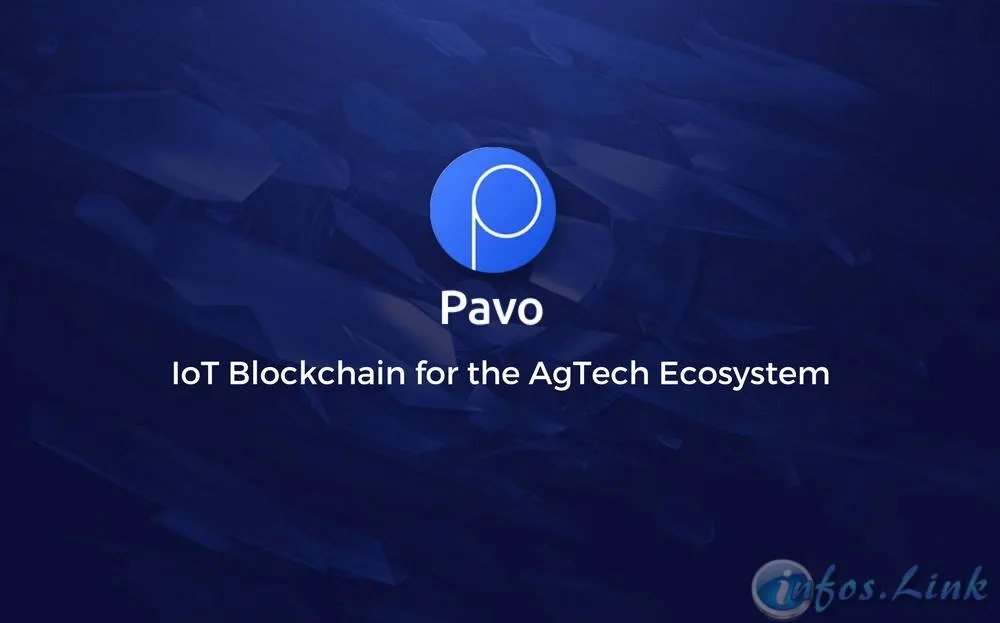This content was deleted by the author. You can see it from Blockchain History logs.

Allan Young, co-founder and vice-president of Pavocoin AG, recently toured Malaysia July 16-26 as part of the company's global roadshow.
Pavo is a data-driven SaaS management platform that enables growers of any crop type to monitor and analyze growing conditions to optimize their techniques for different circumstances. Allan Young has led meetings with various funds in Kuala Lumpur to present the company's innovative AgTech (Farm Technology) solution that brings together AI (Artificial Intelligence), IoT (Internet of Things) and Blockchain technologies, which could have a positive impact on the Malaysian agricultural economy.
Malaysian agriculture in evolution but in difficulty
Compared to many countries, Malaysian agriculture accounts for a smaller share of the country's overall GDP. According to the Statistics Department of Malaysia in 2016, agriculture accounted for about 8.1% of the country's GDP. However, the country is striving to improve its agricultural production by implementing what it calls the 11th Plan Malaysia (11MP), which focuses on green growth, sustainable growth and mechanization, with a view to to improve technological and scientific progress. One of the country's main goals is to adopt the latest AgTech solutions, and Pavo could be a key player in helping Malaysia achieve its goals.
Although the sector as a whole has shrunk as the country has moved towards a manufacturing-based and services-based economy,
Malaysia remains the world's largest producer of natural rubber and the second largest producer of palm oil after Indonesia . Within the sector, palm oil production is by far the largest contributor to the country's overall agricultural GDP, at nearly 47%, and is an important global product, used not only as a cooking oil but also as a main ingredient in a wide variety of products ranging from pharmaceuticals, biofuels, biomass to cosmetics and soaps.
However, the 2015 and 2016 El Niño weather events have had a significant impact on agricultural yields and world prices, which also affected palm oil processing in the country itself, as processors were forced to import oil from Indonesia.
Towards yield optimization with Blockchain, IA and IoT solution support
Extreme weather events are something that the Pavocoin development team understands well. After all, they started working with the Turkish hazelnut producers after the severe drought that hit Turkey four years ago had a devastating impact on hazelnut crops.
Pavocoin worked with local farmers in Turkey to develop a method that predicts the total yield of hazelnuts by modeling the response of each tree to local environmental conditions. The company has created a system that
analyzes every step of the growing process, from seed to harvest until deliveryThis could allow farmers of all sizes to follow and adapt to local growing conditions up to each individual tree. Their application allows farmers to refine their production environments from anywhere in the world through the platform's web and mobile interface.
"Our platform is designed to track vital information and use it to help farmers optimize each stage of the growth cycle, ensuring that vital crop measurements stay within optimal ranges," says Young. .
In fact, the company's scientists carried out
predictive modeling that shows that Pavo's technology allows for significant increases in yield, regardless of crop, thanks to Pavo's technology.
"This means," says Young, "that local farmers can share and analyze data to make adjustments to optimize growing conditions for their crops so that productive lands are maintained rather than degraded. "
This last point is important for palm producers, since one of their main markets is the EU, which has set very strict environmental standards for palm producers through the Round Table on Palm Oil. Sustainable (RSPO). In 2016, the RSPO suspended a major palm oil producer, prompting large multinationals such as Unilever, Kellogg's and Mars to stop doing business with the company. Deforestation continues to be a problem for the industry, with many EU members still expressing concern about the issue in Malaysia and Indonesia. In addition, consumers around the world are aware of the problem and efforts have been made at the grassroots level to encourage people to avoid products that contain palm oil as an ingredient.
Improving crop yields and improving growing conditions could help mitigate the devastation of tropical forests due to deforestation while meeting industrial demand . The capacity of the Pavo blockchain is also helpful in this regard. Buyers of eco-friendly products may
be able to know exactly where any agricultural
product comes from , how it was grown, what pesticides were used, if any, and even how it was transported to. at their table.
This could play a role in the future for end-users who want to avoid palm oil products that do not meet or exceed RSPO standards. and could help palm growers compete with competing oilseed crops such as soybeans and sunflowers.
To learn more about Pavocoin, which is currently conducting the second phase of its private presale for its Initial Coin Offering (ICO), visit the official website. During the ICO various bonuses for the purchase of chips with a minimum purchase of 500 chips. The presale will end on September 12, 2018 and their main sale will begin September 13th with a bonus of 18% and no minimum purchase required. The sale will continue until October 22, 2018, with decreasing bonuses. Each PAVO costs 1 USD.
Posted from my blog with SteemPress : https://infos.link/malaysian-palm-oil-producers-could-benefit-from-pavocoins-latest-blockchain-technology/
